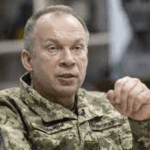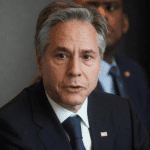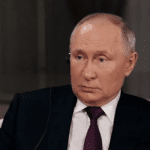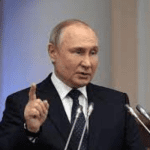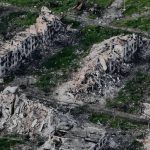According to President Vladimir Putin, Russia is not now pursuing the seizure of Kharkiv, Ukraine’s second-largest city.
However, he emphasised that Russian forces were moving into the north-eastern Kharkiv region to establish a “security zone” for Russia’s own security.
Ukraine claims the front line has stabilised, but admits that Russia has occupied a number of border settlements.
Russia initiated its offensive in the region last week, and heavy street fighting has been reported for many days in Vovchansk, a crucial town near the Russian border.
On Friday, Ukrainian President Volodymyr Zelensky claimed that Russian troops had only managed to advance to the first of Ukraine’s three defensive lines in the region.
Similar comments were made by Ukraine’s top commander Oleksandr Syrskyi, who said the “enemy has extended the active combat zone to nearly 70km, 43 miles,” in the region.
Overnight, Kharkiv – which had a pre-war population of nearly 1.4 million – again came under Russian drone attack and shelling, local officials said. The technological and industrial hub lies about 30km from the Russian border.
Russia’s full-scale invasion of its neighbour is now in its third year, and there are currently no signs that the war – the bloodiest conflict in Europe since World War Two – could end any time soon.
Ukrainian military have engaged in severe combat with advancing Russian forces in the Kharkiv region.
Mr Putin concluded his state visit to China in the north-eastern city of Harbin on Friday, stating that taking Kharkiv was not part of Russia’s present effort in the region.
He stated that the goal was to ensure the security of Russia’s border city of Belgorod, which has been repeatedly targeted by Ukraine’s military troops.
The Kremlin leader said that Ukraine was “firing right on the city centre, on the residential areas” of Belgorod.
Kyiv has previously stated that it is targeting legitimate military targets in the region, such as oil refineries.



